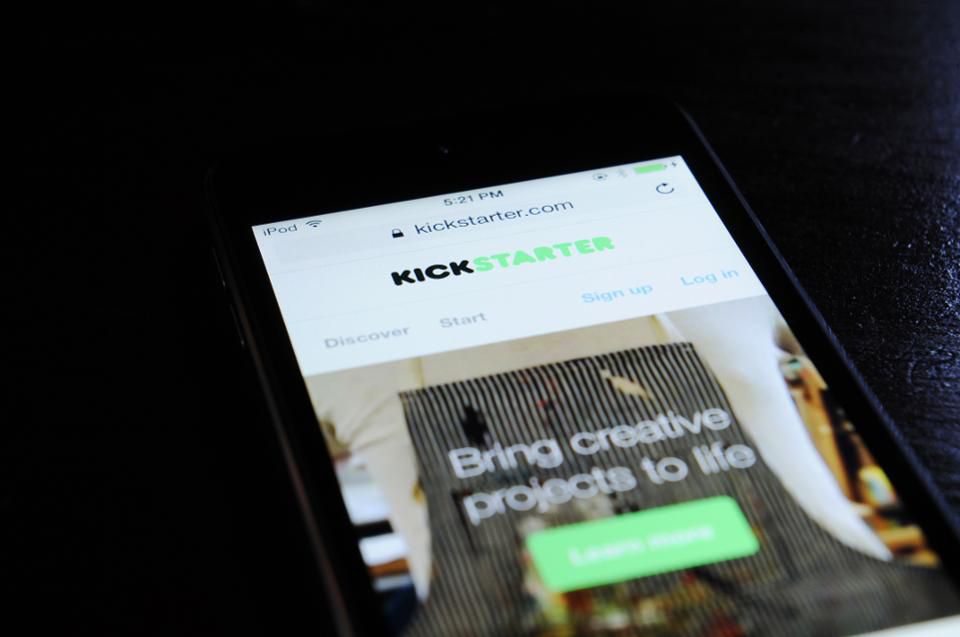
You’re probably familiar with the global crowdfunding platform Kickstarter. Even if you’re not, you’ve probably seen one or two projects that it helped to fund, and maybe even contributed to the $4.35 billion in pledges it has processed since its founding a decade ago. The company branched out into an interesting direction last month when it launched its first ever digital publishing conference, titled “The Next Page: Creating the Future of Publishing.”
Book publishing isn’t a huge portion of the crowdfunding site’s revenue — the “Publishing” and “Journalism” categories together account for just 9% of their successfully funded projects and 4% of the total money pledged. But the industry’s “outsize cultural impact” makes it critically important to the Brooklyn-based public-benefit corporation, Kickstarter’s head of publishing Margot Atwell tells me.
The conference, which spent four panels letting members of the publishing industry chat about topics including economic sustainability and cultivating community, took place across May 11, but can be watched in full online. Making the information freely available was one of Atwell’s driving principles in creating the conference.
“Publishing is a business that’s very challenging to break into,” she says. “There are many great conversations happening, but they often happen at extremely expensive industry events such as Book Expo, or one-on-one in publishing hubs such as New York. I wanted to create a space for high quality conversations on the issues that I think are most important to publishers and authors today: technology, inclusivity, money, and community. I wanted to highlight some of the people doing incredible work in these fields. And I wanted to make these conversations freely available to people all over the country–and around the world–so that finances and location didn’t provide a barrier to people who are interested in learning more about publishing and engaging with high-level ideas.
“I believe that book publishing will become more spread out, drawing on the incredible tools for virtual and remote work that are being developed, and benefiting from the lower cost of living and working in cities that aren’t New York. The Next Page was my way of trying to help the industry understand what’s possible when we think about how to include more people in our conversations.”
That inclusion is the big difference between the traditional publishing industry and Kickstarter’s book projects: The latter has gatekeepers and the former doesn’t. The argument in favor of gatekeepers is that they serve to shift the good from the bad. The argument against them? Thanks to systemic bias and prejudices, they winnow out plenty of good as well as bad.
“Kickstarter allows writers to go directly to readers and let them choose which books get made, which has resulted in books being published that speak to experiences that often aren’t represented in mainstream publishing,” Atwell explains. “The Destroy anthology series is one example of this: it’s a series of speculative fiction and fantasy anthologies dedicated to showcasing the work and stories of People of Color, LGBTQ folks, and disabled people. Mainstream publishers might have looked at these projects and declared them too niche or imagined that there wasn’t a market for them, but these Kickstarter projects have proved that there definitely is an audience for stories centering people who don’t often get to see themselves represented.”
Business is indeed booming for Kickstarter’s “Publishing” and “Journalism” categories, which together are up 6% in dollars pledged YTD over the same period last year, at $8.9 million over 2018’s $8.4 million. Across Kickstarter’s ten-year lifespan, a total of $178.6 million has been pledged to Publishing and Journalism projects by more than two million individual backers.
Journalism, too, is in a place to benefit from a non-traditional fundraising project like the kind Kickstarter supports. “The field of journalism is going through radical shifts right now,” Atwell says, “with business models in flux and a new round of publication closures or layoffs announced every week. Kickstarter can be a way to raise funds and visibility for worthy publications that are important to their readers.”
And while not all supposed solutions to publishing or journalism’s revenue struggles are equal (don’t look to micropayments), the crowdfunding model works particularly well for publishing books.
“The origination costs for a book (author advances, editing, cover design, typesetting, and more) are substantial. In the traditional publishing model, the publisher foots the bill for the creation of the book months or even years before the book is officially published, but then isn’t paid for books until a few months after they are shipped to stores. The publisher also has to make a decision about how many copies to print well in advance of knowing whether or not there is strong reader interest in the book,” Atwell says.
Running a Kickstarter project can solve both of those problems. The publisher drums up funding for their book prior to paying the costs, while at the same time benefiting from a barometer of audience anticipation. And when it comes time to run a second Kickstarter campaign, the publisher can benefit from the momentum of their first.
Traditional publishing approaches still hold plenty of value, but additional approaches can’t hurt, and Kickstarter’s support for its book projects makes the company a worthwhile option for an enterprising author.
Original Source:
https://www.forbes.com/sites/adamrowe1/2019/06/11/how-kickstarter-is-reshaping-the-publishing-industry/#278551ed1c7d









